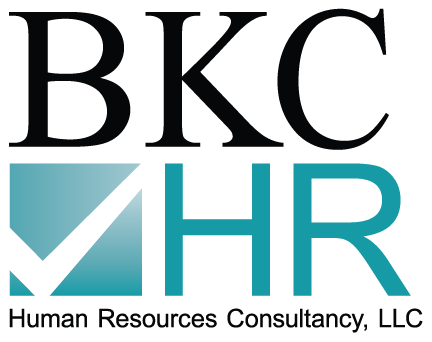On January 7, 2021, Governor Phil Murphy signed the New Jersey Economic Recovery Act of 2020. The law provides for the administration of programs and policies related to jobs, property development, food deserts, community partnerships, small and early-stage businesses, among others.
In an effort to bolster development, the Economic Recovery Act creates, among other things, various tax credit programs which will provide qualifying taxpayers with tax credits for project financing gaps for: (i) qualified redevelopment projects, (ii) rehabilitating qualified historic New Jersey properties, (iii) remediation costs for qualified brownfield redevelopment projects, and (iv) establishing and retaining new supermarkets and grocery stores in food desert communities.
Additional programs under the Economic Recovery Act will provide tax credits to qualifying taxpayers to incentivize the expansion and development of targeted industries and areas in New Jersey, and to encourage economic development, job creation, and the retention of jobs in imminent danger of leaving New Jersey.
The Economic Recovery Act also creates economic redevelopment programs and policies relating to (i) grants, loans, and loan guarantees to small businesses, (ii) advancing the competitiveness of the State’s businesses in the global economy, and (iii) a public-private partnership giving start-up rent grants to collaborative workspaces.
The Act establishes caps on the on the amount of tax credits that can be awarded for the programs that are established by the Act. Moreover, it includes the “Economic Development Authority Integrity and Protection Act”, which among other things, creates an Office of the Economic Development Inspector General for oversight purposes.
Highlights of the various tax credit programs, and other programs and policies are outlined below.
Sections of the Economic Recovery Act providing tax credits for project financing gaps include:
- The “Historic Property Reinvestment Act”, which provides tax credits for part of the cost of rehabilitating historic properties.
- The “Brownfields Redevelopment Incentive Program Act”, which provides tax credits to compensate developers of redevelopment projects located on brownfield sites for remediation costs.
- The “Food Desert Relief Act“, which provides tax credits (and in some cases, grants or loans) in order to incentivize businesses to establish and retain new supermarkets and grocery stores in food desert communities.
- The “New Jersey Aspire Program Act”, which provides tax credits to encourage redevelopment projects by covering certain project financing gap costs.
Sections of the Economic Recovery Act providing tax credits for qualified purposes include:
- The “New Jersey Community-Anchored Development Act”, which provides tax credits to anchor institutions to incentivize the expansion of targeted industries in New Jersey and the continued development of certain areas of the State.
- The “Emerge Program Act“, which provides tax credits to encourage economic development, job creation, and the retention of significant numbers of jobs in imminent danger of leaving New Jersey.
- Tax credits for new hires involved in the manufacture of personal protective equipment in a qualified facility.
Sections of the Economic Recovery Act relating to economic redevelopment programs and policies include:
- The “New Jersey Innovation Evergreen Act”, which provides for auctioning up to $300,000,000 in tax credits for cash to qualified venture firms, which will be used to invest in innovation as a catalyst for economic growth and to advance the competitiveness of the State’s businesses in the global economy.
- The “Main Street Recovery Finance Program Act”, which provides grants, loans, and loan guarantees to small businesses.
- The “New Jersey Ignite Act”, which provides a public-private partnership giving start-up rent grants to collaborative workspaces to support the early months of an early-stage innovation economy business’s rent at the collaborative workspace. Sections of the Economic Recovery Act relating to oversight include:
- The “Economic Development Authority Integrity and Protection Act”, which creates an Office of the Economic Development Inspector General, which will operate independent of the oversight or management of the of the Economic Development Authority (EDA), and which requires employment of a Chief Compliance Officer to manage the Division of Portfolio Management and Compliance in the EDA.
Other sections of the bill amend existing tax credit programs, like:
- The Offshore Wind Economic Development Act, including changes to the eligibility requirements, disbursement of credits, and deadlines.
- The film tax credit provisions which were revised to include provisions for “New Jersey film partners” and “New Jersey film-lease partners,” and to allow an additional $200 million of tax credits annually over 13 years.
- The New Jersey Angel Investor Tax Credit Act, including to increase the annual tax credit cap from $25 million to $35 million and to add provisions for venture funds.
- The (now sunset) Grow New Jersey Assistance Program, including to amend the definitions of “incentive effective date” And “targeted industry.”
- The Economic Redevelopment and Growth Grant Program, which was revised to extend deadlines for applying from July 1, 2019 until December 31, 2021 for qualified residential projects and mixed-use parking projects and allow an additional $220 million of tax credits to be awarded.
Our professionals at BKC are well qualified to assist your business in determining if you qualify for any of these credits. Please contact us at 908-782-7900 or info@bkc-cpa.com.
Read more helpful tips and articles here.
Learn more about our Business Services here.





